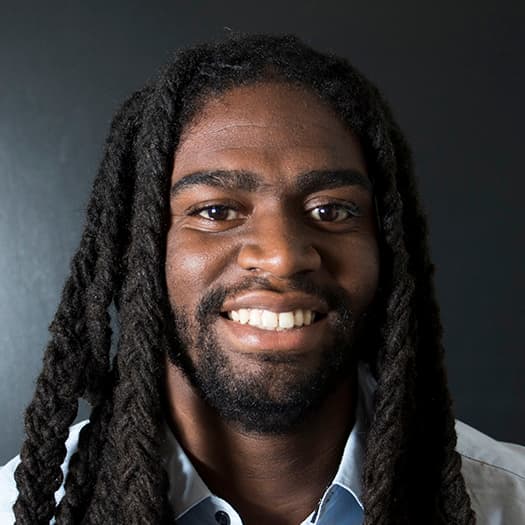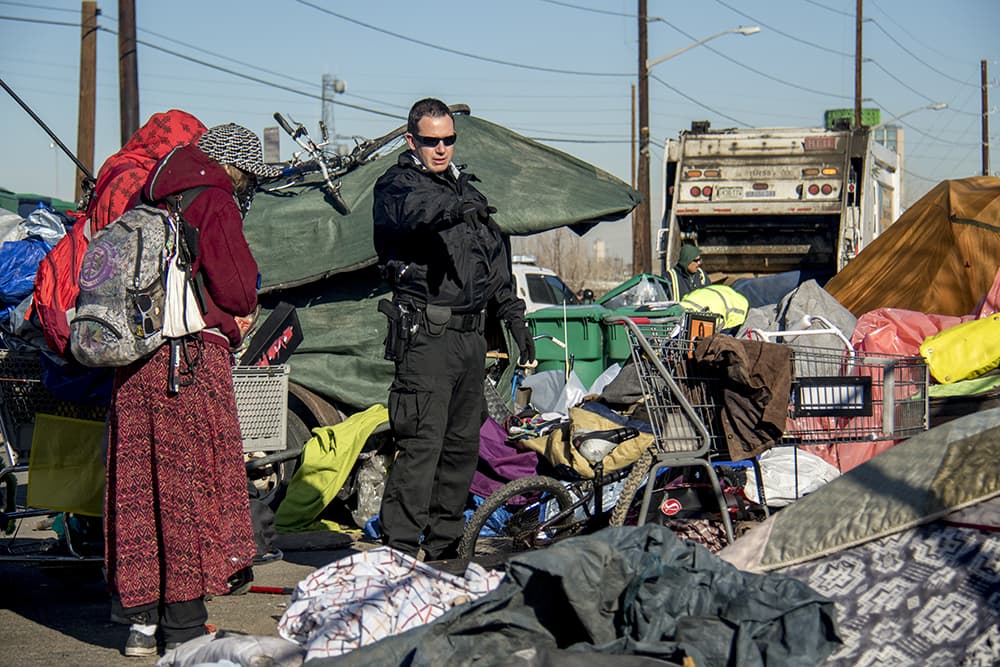
Public defenders from across the country gathered in Denver last week to talk about best practices for diverting people suffering from mental health issues away from the criminal justice system at a conference hosted by the Equitas Project.
Colorado State Public Defender Douglas K. Wilson is increasingly concerned about Colorado’s lack of attention to the issue and worries that the financial and moral consequences of inaction could be devastating.
“In this country, we have turned jails and prisons into the number one mental health facilities, as opposed to community mental health centers, and then we expect people to get better,” he said.
Wilson believes the city of Denver and the state of Colorado should do more to avoid criminalizing people who are in need of treatment.
“If I break my arm today, they’re not taking me to jail to get treatment,” he said. While marijuana money has provided new funding for mental health programs in the state, Wilson feels that without more investment in that arena, Colorado will continue to fall behind the rest of the nation and our vulnerable populations will suffer as a result.
For Wilson, the first step for fixing the system is to call for prosecutors, judges, public defenders, law enforcement and others in the criminal justice system committing to redirect people with mental health issues to institutions built to help them. He believes this step, along with destigmatizing mental illness, will foster an environment where people aren’t always sent to jail as a temporary solution.
He noted that misconceptions about mental illness often lead people, even those working in the criminal justice system, to think that population is far more violent than they actually are — and that can cause someone who's suffering from a mental ailment to be charged with trespassing and passed into the criminal justice system, rather than being provided treatment options.
Illinois Public Defender Amy Campanelli echoed a position held by many in attendance, saying that people suffering from mental illness are no more violent than the general population and are in fact more likely to be victims of crime themselves.
Here are a few perspectives on the intersection of mental health and the criminal justice system from other cities:
Seattle
National Association for Public Defense executive director Ernie Lewis pointed to Seattle as a well regarded city for how it interacts with vulnerable populations.
Seattle Public Defender Lorinda Youngcourt said she believes the criminal justice system is not currently constructed to help those with mental health issues improve.
“The criminal justice system has become the dumping ground for all sorts of folks including those who are just plain poor,” she said.
“If we’re going to live by the idea of ‘first do no harm’ then we’re totally missing the point on this,” said Youngcourt. In King County — home to Seattle — a program called Familiar Faces identifies people that have had multiple encounters with police in a calendar year and figures out ways to provide them with wrap-around services. They are able to provide those in the program with a three-week supply of their medications to help stabilize them as they transition back into the general population. Case managers also provide services like rides to housing voucher programs that can help place patients locate affordable housing that provides additional support and care.
“I would love to take all of the money that I spend providing lawyers for mentally ill folks, court systems and criminal systems and put it in the community, not even particularly the government," she said.
Denver has similar wrap-around services and transitional housing, according to Mental Health Center program manager Chris Richardson. People who qualify for housing are not mandated to use wrap-around services but are afforded case managers that can connect them with the services they need.
Miami
In Dade County, County Judge Steve Leifman said he was horrified by the inefficiency and lack of compassion in their system before a major revision in 2000. He says they've seen great results.
According to Leifman, as a result of training a significant number of officers in every police department in crisis intervention team-policing and updating a post-release protocol to include more meaningful wrap-around services, their recidivism rate dropped nearly 50 percent for misdemeanors.
“From the time we started the program, we had about 118,000 arrests per year. We now have about 56,000 arrests per year,” Leifman said.
He said Dade County has saved upwards of $12 million per year, and was able to close a county jail. He said the saved resources freed up their criminal justice system to deal with more serious crimes.
Denver does not have as many officers trained in CIT but the city has found success in sending trained mental health professionals, called co-responders, with police in situations that involve mental health issues. In 2016, the program's first year, out of 1,537 calls co-responders handled, only 3 percent resulted in a subsequent arrest or citation.
Georgia
For Sabrina Rhinehart, Division Director at the Georgia Public Defender Council, the key is to keep the well-being of the person in custody at the forefront. She, like many of the other public defenders at the conference, noted that the criminal justice system is not well suited for individuals with mental health problems and may in fact exacerbate symptoms they are experiencing.
The Georgia Public Defender Council is trying a new project that involves heavy collaboration between the criminal justice system and social service providers to improve the speed of care for mental health patients.
Denver has a mental health court to foster collaboration between social services and the criminal justice system for those living with mental health issues and battling substance abuse.
Chicago
“I would say we’re the cutting edge in some ways,” said Campanelli, the public defender in Cook County. She pointed to initiatives like their Treatment Alternatives for Safer Communities, a program focused on mental health and substance abuse issues, which often go hand in hand. The program also works with the county's sheriff, and together they have opened a post-release transitional housing unit for those living with mental health issues.
The Cook County jail also gives inmates on medication a three-week supply after their release to hold them over as they transition back into public life. “We have to fund clinics, we have to fund resource centers,” Campanelli said. In Cook County, they have recently opened a 24-hour mental health facility that police can bring people into, as opposed to taking them to jail.
Community members can also use the facility if they or someone they know is in need of mental health treatment. In her opinion, the country as a whole needs to move funding away from criminal justice initiatives and towards such programs, and things like increasing social workers' presence in schools, to end the cycle of jailing the mentally ill.
Denver's largest metal health treatment center is the Mental Health Center of Denver, according to Richardson. "We serve 15,000 people yearly and have been utilizing case management systems to get people to the right place 25 plus years" said Richardson.













